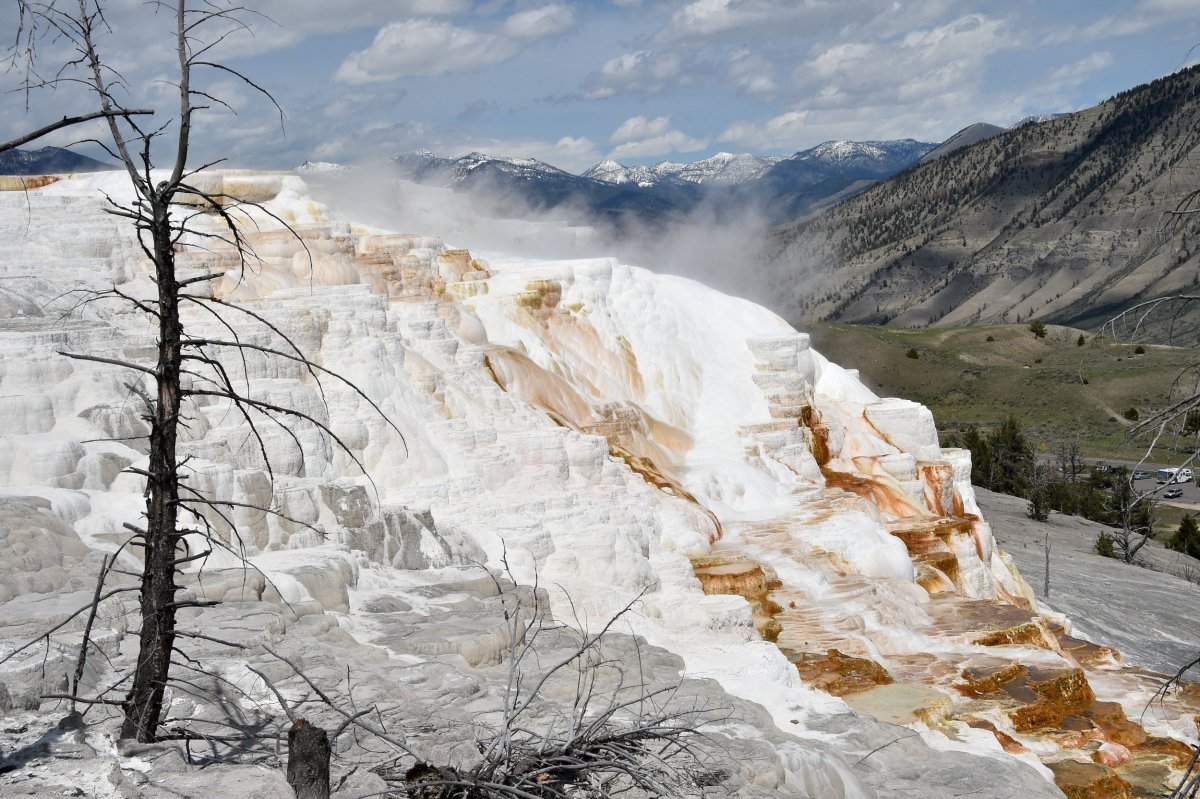Last week, the U.S. Geological Survey (USGS) released a list of America's volcanoes ranked in order of threat level. The report looks at factors like nearby population sizes and potential aviation disruption to try and predict how devastating eruptions could be.
But tabloids and fringe media outlets went on to spread misleading—and sometimes outright false—information about the list.
Take conspiracy website Disclose.tv, for example, which published an article with the headline "Yellowstone Super Volcano Threat Level Just Increased To 'High' By USGS." This claim is simply untrue.
Yellowstone—which comes in a number 21 on the list—does indeed have a "high" threat level. But that hasn't risen since the last threat assessment in 2005, as USGS geophysicist Michael Poland pointed out in the Yellowstone Caldera Chronicles.
"The assessment is NOT a list of which volcanoes are most likely to erupt, nor is it a ranking of the most "active" volcanoes," Poland wrote. "Instead, the assessment is a quantification of the relative threat posed by the volcanoes in the United States."
Some four million people visit Yellowstone each year to enjoy its geysers, hot springs, forests, alpine rivers and canyons. Spreading misinformation about the incredible park, Poland wrote in another Chronicles article, "causes unnecessary and unfounded anxiety." But it happens often, he added, and false information is sometimes shared "with the deliberate intent to deceive people."

"If you ever have a question about Yellowstone's volcanic activity or history, we encourage you to contact us," he wrote. "We do our best to respond to all inquiries, whether from individuals or the media, and we are happy to answer questions or direct you to whatever information you might be looking for."
Yellowstone aside, some volcanoes actually did change ranking based on scientific data gathered in the 15 years between the reports. California's Salton Buttes and Alaska's Mount Cleveland, Mount Douglas and Fisher Caldera were among those volcanoes that rose into the "high" threat group.
"The most amount of categorical change has occurred in Alaska, and for very good reason," Salisbury University geologist Thomas Carthern told Newsweek. "Alaska, and the Aleutian Islands, occur along an active subduction zone, where volcanism is continuously fed by the waterlogged subducted slab of the Pacific Plate.
"As this hydrated slab slips beneath the overriding plate, magma is generated at depth. That magma rises buoyantly through Earth's crust and feeds the volcanoes at the surface in this region," he explained.
The Last Frontier's Fourpeaked Mountain, however, "leapfrogged" up the list because of recent eruptive activity, he added.
Some volcanoes, on the other hand, were demoted, like Alaska's Mount Dutton and Mount Wrangell, Mount Gareloi and Pavlof Sister. Others, like Steamboat Springs in Nevada, were removed altogether.
Uncommon Knowledge
Newsweek is committed to challenging conventional wisdom and finding connections in the search for common ground.
Newsweek is committed to challenging conventional wisdom and finding connections in the search for common ground.
About the writer
Katherine Hignett is a reporter based in London. She currently covers current affairs, health and science. Prior to joining Newsweek ... Read more
To read how Newsweek uses AI as a newsroom tool, Click here.








